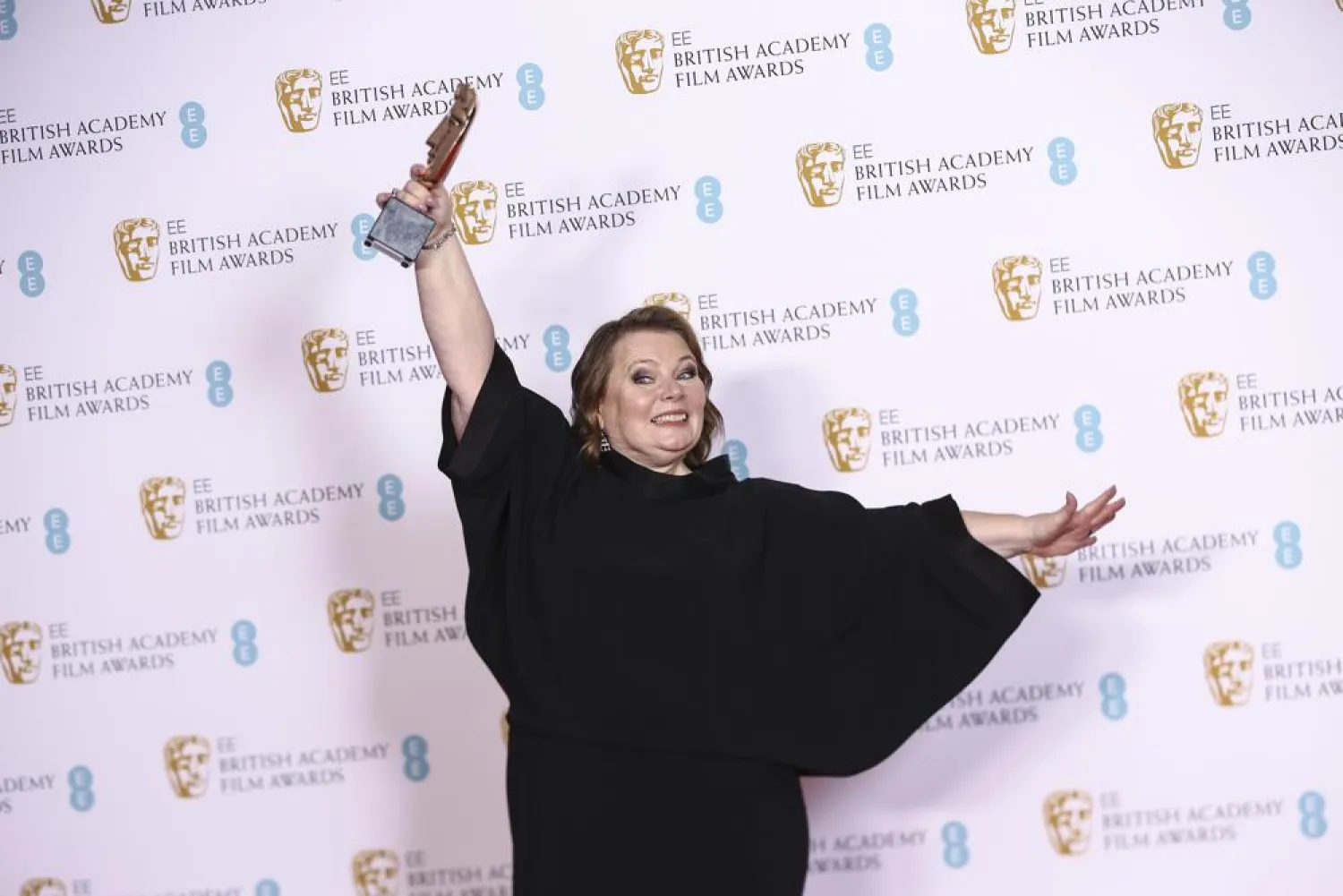Sci-fi epic “Dune” won five prizes and brooding Western “The Power of the Dog” was named best picture as the British Academy Film Awards returned Sunday with a live, black-tie ceremony after a pandemic-curtailed event in 2021.
New Zealand filmmaker Jane Campion was named best director for “The Power of the Dog,” becoming only the third woman to win the prize in the awards’ seven-decade history.
Lead acting trophies went to Hollywood star Will Smith and British performer Joanna Scanlan, as an event that has worked to overcome a historic lack of diversity recognized a wide range of talents — including its first deaf acting winner in Troy Kotsur for “CODA.”
Last year’s awards ceremony was largely conducted online, with only the hosts and presenters appearing in person. This year’s return to collective celebration at London’s Royal Albert Hall took place in the shadow of Russia’s brutal invasion of Ukraine.
British film academy chairman Krishnendu Majumdar opened the show, hosted by Australian actor-comedian Rebel Wilson, with a message of support for Ukraine.
“We stand in solidarity with those who are bravely fighting for their country and we share their hope for a return to peace," he said.
After that came the glitz, with 85-year-old diva Shirley Bassey and a live orchestra performing “Diamonds Are Forever” to mark the 60th anniversary of the James Bond films, Britain's most successful movie export.
“Bond is turning 60, and his girlfriends are turning 25,” joked host Wilson, who toned down her usual bawdy material for the ceremony's early-evening TV broadcast on the BBC.
Denis Villeneuve’s “Dune,” a space epic set on a desert planet, took five trophies from its 11 nominations: visual effects, production design, sound, Greig Fraser's cinematography and Hans Zimmer's score.
"The Power of the Dog,” set in 1920s Montana and starring Benedict Cumberbatch as a ranch owner, was nominated in eight categories and won two big ones: best film and best director. Campion is only the third female winner in that category, but the second in two years after Chloe Zhao for “Nomadland” in 2021.
Cumberbatch lost to Smith, who was named best actor for his performance as the father of Serena and Venus Williams in “King Richard.”
Scanlan was a surprise best-actress winner, beating contenders including Lady Gaga to win for “After Love,” a first feature by Aleem Khan about a woman who makes a life-changing discovery after her husband’s death.
“Some stories have surprise endings don’t they?” said a disbelieving Scanlan.
Scanlan, best known as a star of satirical TV political comedy “The Thick of It,” said the prize would open doors.
“I hope I get a really exciting, chunky short film and also a Bond audition," she said.
Kenneth Branagh’s semi-autobiographical “Belfast,” the story of a childhood overshadowed by Northern Ireland’s violent “Troubles,” was named best British film.
Ariana DeBose was named best supporting actress for her performance as Anita in Steven Spielberg's lavish musical “West Side Story.” The supporting actor prize went to Kotsur for “CODA,” in which he plays the deaf father of a hearing daughter.
“Have you considered maybe a deaf James Bond?” he asked in his speech, delivered in sign language.
Lashana Lynch, who made a splash as a double-0 agent in Bond thriller “No Time To Die,” took the rising star award, the only category chosen by public vote. She thanked "the women of this country who taught me what it is to be in this industry as a dark-skinned woman. I thank you for laying the foundation for people like me.”
“No Time to Die” also won the prize for best editing.
Japanese director Ryusuke Hamaguchi’s Oscar-nominated drama “Drive My Car” was named best film not in English. “Encanto,” the story of a Colombian clan with magical powers, was named best animated feature, and 1960s Harlem music extravaganza “Summer of Soul” won the best documentary prize.
Sian Heder won the adapted screenplay prize for “CODA.” Best original screenplay went to Paul Thomas Anderson for coming-of-age story “Licorice Pizza.”
The British awards are usually held a week or two before the Academy Awards and have become an important awards-season staging post. This year’s Oscars take place March 27.
The British film academy has expanded its voting membership and shaken up its rules in recent years in an attempt to address a glaring lack of diversity in the nominations. In 2020, no women were nominated as best director for a seventh consecutive year, and all 20 nominees in the lead and supporting performer categories were white.
Majumdar said this year's more diverse field showed that "change has come." But the celebration of cinema was subdued, with many attendees reflecting on the war raging on the other side of Europe.
Cumberbatch wore a lapel badge in the blue and yellow of the Ukrainian flag. He said it was to oppose the “megalomaniac” Russian President Vladimir Putin “raining down terror” on Ukraine.
“It’s a very scary and sad time,” he said on the red carpet. “Although this is a gesture, and people can say it’s hollow, it’s just something I can do tonight” — along with pressuring British politicians to take in more refugees from the war.
Jonas Poher Rasmussen, director of animated feature “Flee,” the story of an Afghan refugee, said it was “surreal” to be at an awards show when “the world is burning.”
But he said images of the millions driven from their homes in Ukraine underscored the message that “these stories need to be told.”









